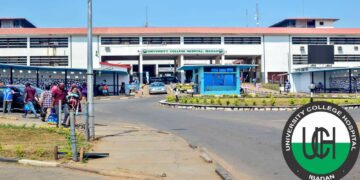By Afeez Akinfola Oyinloye
Across Africa, governments face a daunting challenge: delivering efficient public services amidst limited resources, aging infrastructure, and growing populations. In Nigeria, where bureaucracy often slows progress, the need for streamlined operations is more pressing than ever. As the founder of MacTech O.A Nigeria Enterprises, an IT solutions firm I established in 2014, I’ve witnessed how digital transformation can turn this challenge into an opportunity. By deploying tailored IT services for government organizations, we’ve proven that technology isn’t just a luxury, it’s a necessity for progress.

Take one project we completed earlier this year for a local government agency in Osun State. The agency relied on paper-based systems for citizen records, a process plagued by delays, lost files, and frustrated staff. MacTech stepped in with a custom digital platform that digitized their database, enabling real-time access and updates. The result? Processing times dropped by 30%, and staff could handle triple the volume of requests without additional hires. This wasn’t just an upgrade, it was a lifeline for a system on the brink.
This experience underscores a broader truth: African governments can’t afford to lag in the digital age. Nigeria’s public sector, like many across the continent, grapples with inefficiencies that stifle development—think manual tax collection, disjointed health records, or opaque procurement systems. Yet, the tools to fix these issues exist, and they’re within reach. At MacTech, we’ve also supported non-governmental organizations with similar solutions, such as a tracking system for a health initiative that cut reporting delays from weeks to hours. These projects highlight a simple principle: IT services, when thoughtfully applied, can unlock efficiency at scale.
The journey hasn’t been without hurdles. Convincing stakeholders to abandon familiar processes requires trust, and limited budgets often mean doing more with less. In Osun, we overcame resistance by piloting our solution with a small team, letting results, faster service delivery and happier citizens speak for themselves. Technical challenges, like unreliable power or internet, forced us to innovate with offline capable systems and mobile-friendly interfaces.
These adaptations aren’t just workarounds; they’re lessons in building resilient tech for Africa’s unique context.
My work extends beyond client projects. Since founding MacTech, I’ve trained over 500 young Nigerians in tech skills; coding, system design, and more equipping them to support this digital shift. Some now work on government IT initiatives, amplifying our impact. This effort earned nods from local leaders, reinforcing my belief that transformation starts with people as much as technology. Meanwhile, my other venture, WakaForMe Errand—a taxi app launched in 2021 complements this mission by showing how private-sector innovation can inspire public-sector progress.
What does this mean for Nigeria and Africa? The continent’s digital government market is projected to grow, with countries like Kenya and Rwanda already setting the pace. Nigeria can join them by investing in local talent and solutions like those MacTech provides. But the implications stretch further. The UK, a global leader in digital governance, could learn from our lean, context-driven approaches, imagine applying Osun’s lessons to optimize rural service delivery in Britain. As I plan to scale MacTech’s impact, I see collaboration between African and global tech ecosystems as the next frontier.
Digital transformation isn’t a buzzword, it’s a lifeline for efficient governance. In Nigeria, where every saved hour or naira directly improves lives, IT services are proving their worth. Through MacTech, I’m committed to driving this change, one system, one trainee, one solution at a time.
For Africa’s governments, the message is clear: the future is digital, and it’s already here
ABOUT THE AUTHOR
Afeez Akinfola Oyinloye is a notable Nigerian tech entrepreneur and the founder of MacTech O.A Nig. Ents. He graduated with a Bachelor of Science degree in Business Information Systems from the University of East London. After completing his studies, he returned to Nigeria and established MacTech in 2014, with the aim of empowering youths through technology education.
Under his leadership, MacTech has trained over 500 youths in various aspects of Information and Communication Technology (ICT). The company was officially incorporated in 2016 and has since become a significant player in the tech training sector in Nigeria.
Afeez Akinfola Oyinloye is a dedicated advocate for tech education and innovation in Nigeria, making a lasting impact on the lives of many young individuals.






















